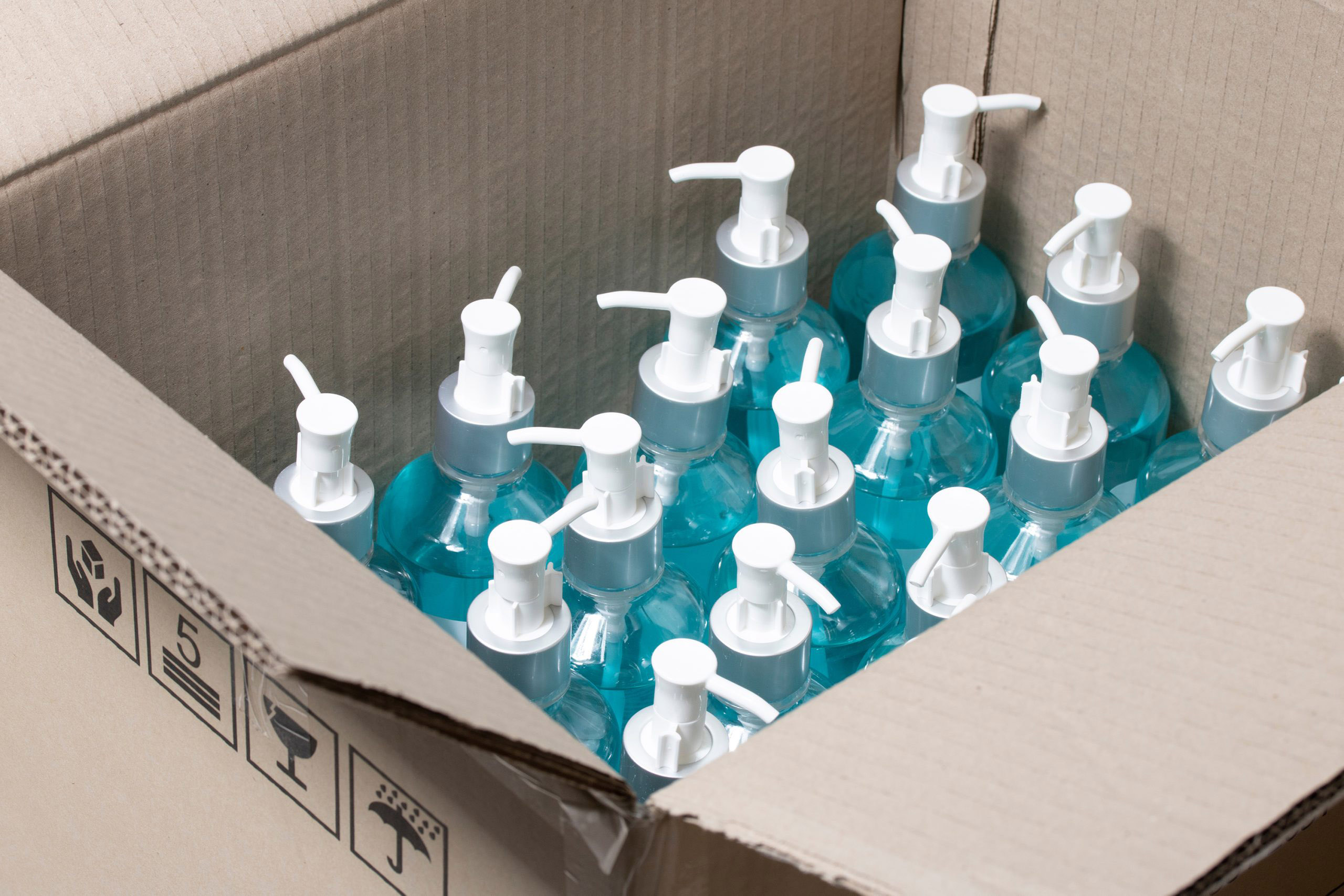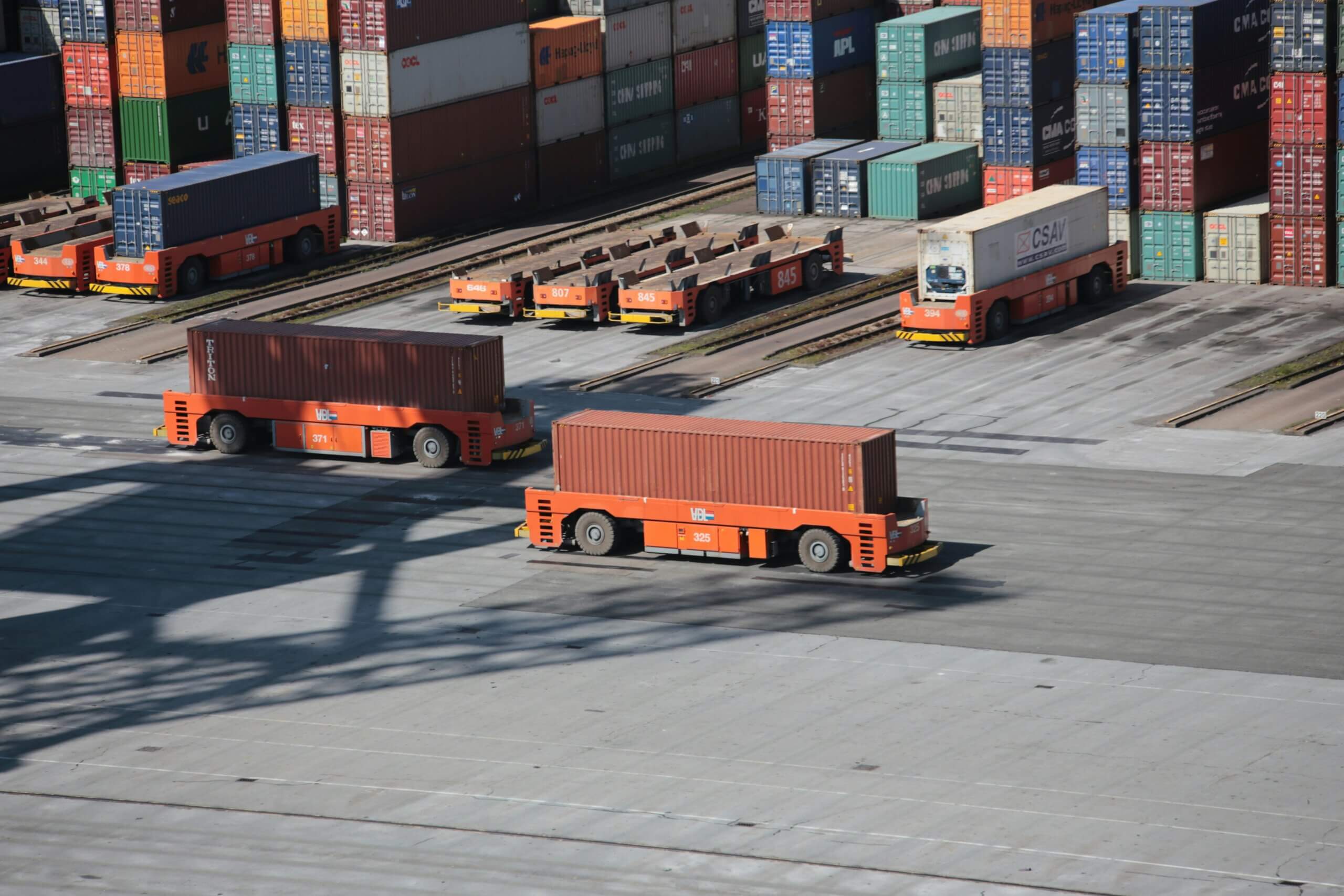When the Covid-19 pandemic hit, businesses around the world started to think through ways they could support relief efforts. As the country, and the rest of the world, faced an urgent need for critical goods, — such as personal protective equipment (PPE) and hand sanitizer — Scott Barrows, Co-Founder and CEO of EchoSystem, knew traditional methods for sourcing and procuring materials would take too long.
EchoSystem, a B2B chemical marketplace, realized their platform had the opportunity to accelerate the complex process of getting critical goods in the hands of those who need them most — from the procurement of raw materials through delivery to hospitals and nonprofits.
“I think this pandemic has really shined a light on how much friction there is in the supply chain currently and how costly it can be when you need to get information and products out there quickly,” said Barrows.
To help reduce some of this friction for pandemic response efforts, they pivoted focus to helping connect raw materials and goods with organizations and people that need them to fight the virus.
Repurposing Supply Chain Tech to Support the Pandemic
In a matter of weeks, they repurposed their platform — building capabilities and a network that would have taken years — and are connecting manufacturers and distributors with organizations that are fighting the pandemic.
Because EchoSystem works with chemical companies, they are familiar with a highly regulated industry and the need to ensure companies are accredited. The marketplace is a private invite-only network of accredited distributors and manufacturers that can choose who can purchase each product, at what price by state, region, and branch.
Permission-based marketplace controls are especially important for Covid-19 response because companies want to make sure their resources and products are going to hospitals, nonprofits, and those in need.
“The state governments can procure the products in the system and they can post for the products that they need. As soon as they’re able to find the right assets, they can make sure that it goes directly to the nonprofits, the state and local governments, the police department, the fire departments, and the hospital groups immediately,” said Barrows.
In an open marketplace, sellers don’t have as much control over the buyer and goods could end up in the wrong hands.
Removing Friction from the Procurement and Delivery Process
Through EchoSystem’s Visibility and Procurement Platform (VAPP), manufacturers can source raw materials to create critical goods for response efforts, such as masks and hand sanitizer, and find accredited organizations that need these supplies.
They have 6,500 hospitals and 2,700 emergency response nonprofits in the US prepopulated within the system. And within three weeks, they had more than 200 companies signed up and using the system and they are expanding usage in additional countries. EchoSystem expects 20 million N95 masks to go through their site directly to state government(s) by the end of the week.
The company’s goal is to connect these parties directly to expedite the procurement process, reducing a process that typically takes two or three days to 60 seconds or less in three clicks. This includes booking freight for highly regulated products. They reduce friction by creating direct connections between the manufacturers, distributors, and buyers while also providing visibility.
“We’re decentralizing the process. We are giving direct access through the supply chain from the producers and distributors that have the product directly to the individuals that need it,” said Barrows.
To streamline the entire process, from procurement through delivery, EchoSystem is leveraging project44 to gain real-time transportation visibility into the goods in transit. By integrating project44 with their procurement platform, EchoSystem is bridging the process, increasing efficiency and speed when it’s needed most.
“The integration with project44 was so critical to pull this off. The only way we’re able to create efficiencies in the supply chain is by automating and digitalizing it. We would not be able to do that throughout the entire process without also having project44,” said Barrows. “We would never have been able to achieve what is necessary to help in this situation without project44.”
Enabling Other Businesses to Support Pandemic Response Efforts
By creating direct connections across various networks, VAPP is allowing businesses to source raw materials they wouldn’t typically use and provide goods to distributors and organizations that they wouldn’t usually work with. With these connections, manufacturers can use their resources to support Covid-19 response efforts by creating critical goods as quickly as possible.
“It’s creating this really interesting symbiotic relationship between the different industries, especially when this pandemic hits and they’re forced to either procure raw materials that they don’t typically need or seek out new supply channels that they typically don’t use. The network is working in all these different directions to connect people in different ways,” said Barrows.
The distillery industry is a good example. With ethanol in short supply, distillers are using their supply to make hand sanitizer, however they need thickening agents and hydrogen peroxide, which they don’t usually use. Some of these companies are using VAAP to instantly connect with chemical distributors they haven’t accessed in the past to create these high demand products. Distilleries, which typically sell to liquor stores, are also using the platform for distribution by finding hospitals and nonprofit organizations that need hand sanitizer.
And it’s not just the hand sanitizer. As fuel additive packaging companies receive decreased orders due to limited travel, they are finding ways to repurpose oil and fuel additive bottles for much-needed hand sanitizer packaging. Through VAPP, they’re able to connect directly to the companies producing hand sanitizer.
With companies across industries repurposing their manufacturing lines to help fight the pandemic, VAPP is making it easier to find the raw materials and distribute the product where it’s needed most.
Building a Frictionless Supply Chain for Business and Humanitarian Efforts
This is only the start of possible use cases for VAPP. EchoSystem is envisioning how the platform can be used by various industries to ensure business can keep running and communities in need have the necessary resources to combat the pandemic.
“We are constantly looking for opportunities to expand the breadth of issues we can tackle. There’s a value connecting different industries with each other, but there’s also value in instantly connecting industries to humanitarian needs,” said Barrows.
EchoSystem has visions about how technology can be used not only to respond to emergency events but predict what materials and resources will be needed to help improve proactive measures. Aside from the impact on humanitarian logistics, this automation and visibility will enable supply chains to transform their business, evolving the entire end-to-end lifecycle.
“This is where we imagined the product being in three to five years and it’s happened within three to four weeks. It’s been absolutely amazing to watch, and I think it’s a glimpse into the future of our industry,” said Barrows.



